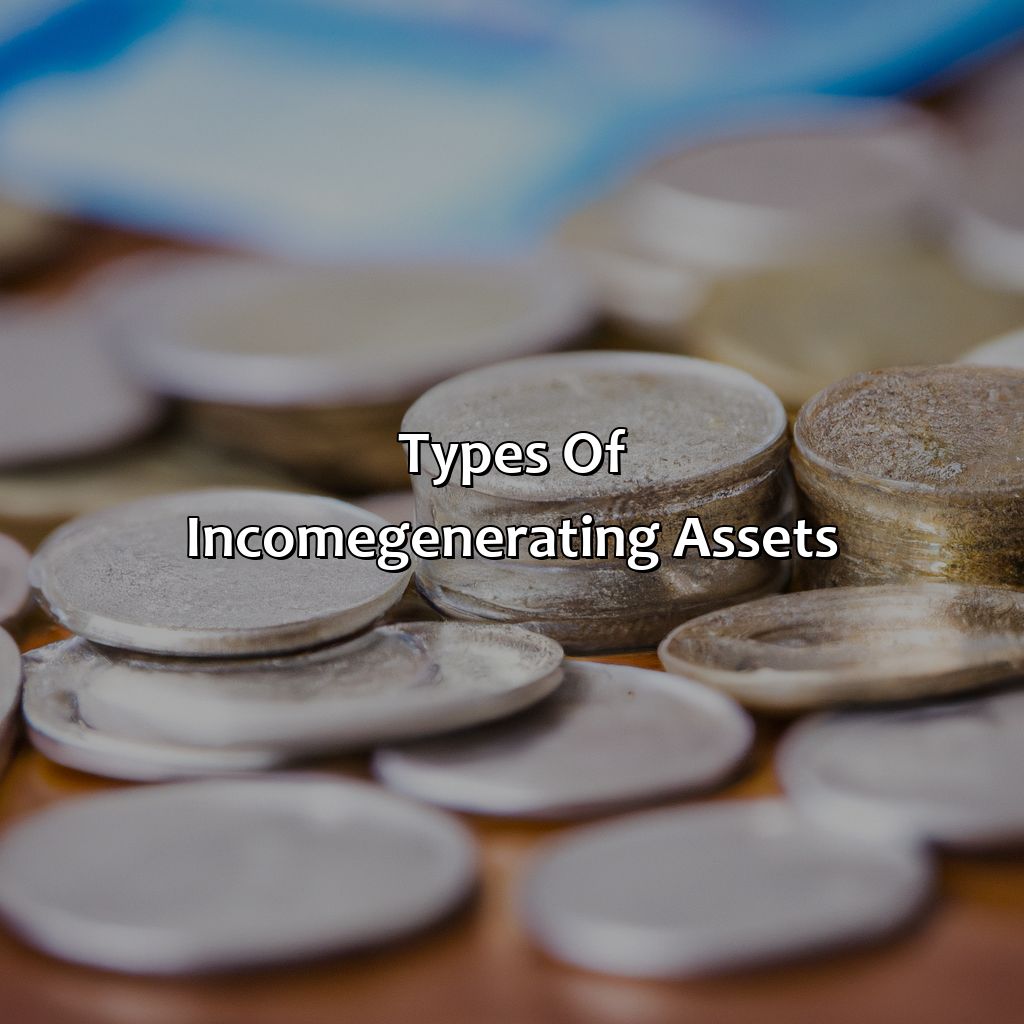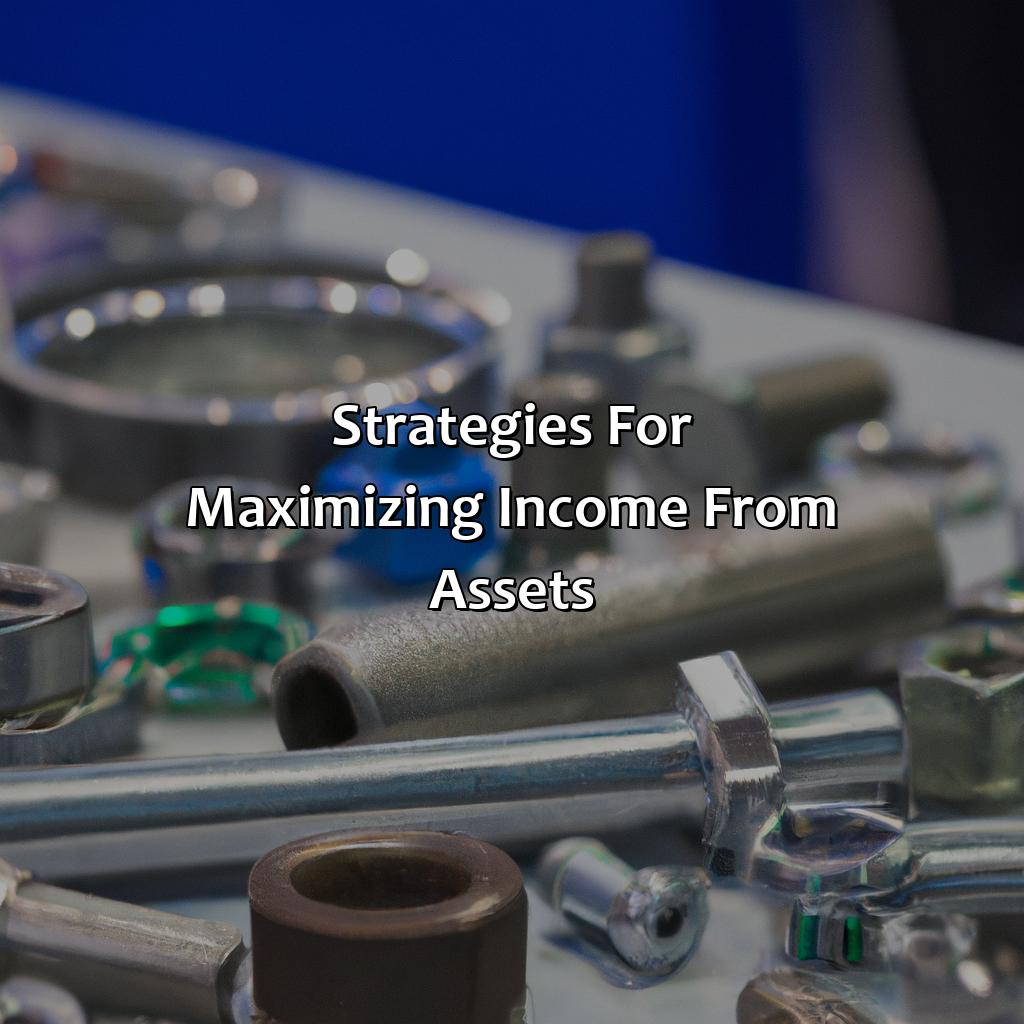Which Asset Type Would Be Most Useful As Part Of An Income Investment Strategy?
Key Takeaways:
- Bonds are a popular income-generating asset among investors with a low risk tolerance. They provide steady income and relatively stable returns over time.
- Dividend-paying stocks are attractive for investors seeking higher income potential and are willing to take on more risk. They can provide both capital appreciation and income, but are subject to market volatility.
- Rental real estate is a good option for investors looking for passive income. It requires a higher initial investment but can provide consistent cash flow and potential for appreciation. It also offers tax benefits like deductions for mortgage interest and property taxes.
Are you looking to diversify your income investment strategy? Discover the advantages and drawbacks of different asset types to help you decide which one is the most useful for you.
Types of Income-Generating Assets
As part of an income investment strategy, it is essential to consider various types of income-generating assets. These assets generate income for investors, adding to their portfolios and providing a steady stream of cash flow. Here are some key types of income-generating assets:
- Real Estate: Real estate investment trusts (REITs), rental properties, commercial properties, and vacant land are potential options for generating rental income and capital appreciation.
- Bonds: Bonds are fixed-income securities that allow investors to receive interest payments and, upon maturity, return of principal.
- Dividend-Paying Stocks: Stocks of companies that pay dividends, such as blue-chip stocks or dividend-focused mutual funds, are a good option for income-seeking investors.
- Peer-to-Peer Lending: Investing in peer-to-peer lending platforms can provide regular payments in the form of interest income.
- Annuities: An annuity is a contract with an insurance company that guarantees regular payments to investors over a specified period.
Moreover, investors should consider the expenses, risks, and liquidity of each asset type before finalizing their strategy. It is also essential to diversify and balance the portfolio to minimize risk.
A report by CNBC suggests that the top income-generating asset class is dividend-paying stocks, with an average yield of 2-4%, followed by REITs. However, investors must conduct thorough research and consult with financial advisors before making decisions regarding their investment portfolio.

Image credits: retiregenz.com by David Woodhock
Factors to Consider in Choosing an Asset Type for Income Investment
When investing in income-generating assets, several factors must be considered to determine the most appropriate option.
Key considerations when choosing an asset type for income investment are:
- Expected Return: Consider the asset’s potential return and ensure it aligns with your income needs.
- Risk Tolerance: Assess your tolerance for risk and choose an asset class that fits your risk appetite.
- Market Volatility: Evaluate the asset’s volatility to understand its performance during volatile market conditions.
- Liquidity: Analyze the asset’s liquidity to determine how easily it can be sold if necessary.
- Tax Implications: Understand the tax implications associated with different types of income-earning assets.
It is essential to invest in a diversified asset portfolio to minimize risk exposure. Achieving diversification requires investing across asset classes and sectors to reduce the portfolio’s overall vulnerability to market fluctuations.
Real estate is a popular income-generating asset class, with the global real estate market valued at approximately $280 trillion, according to Allianz.

Image credits: retiregenz.com by Joel Arnold
Strategies for Maximizing Income from Assets
Maximizing the income from assets is crucial for building wealth and securing financial stability. Below are some effective tactics to achieve this goal.
- Invest in dividend-paying stocks and bonds
- Consider real estate investments, such as rental properties
- Explore alternative investments like peer-to-peer lending or private equity
- Utilize tax-advantaged accounts for higher returns
- Regularly review and adjust asset allocation to meet income needs
- Diversify your portfolio to mitigate risk
To further enhance the income stream, consult with a financial advisor to determine the most suitable asset type based on personal financial goals and risk tolerance.
Don’t miss out on the potential benefits of income-generating assets. Take action now to implement a well-diversified investment strategy to secure a reliable and sustained income stream for the long term.

Image credits: retiregenz.com by James Washington
Five Facts About Which Asset Type Would Be Most Useful As Part Of An Income Investment Strategy:
Bonds are a popular asset type for income investors due to their regular fixed income and lower volatility compared to equities. (Source: Investopedia)
Dividend-paying stocks can also provide a steady stream of income for investors, but come with higher risks due to volatility and the potential for cuts in dividends. (Source: The Balance)
Real estate investment trusts (REITs) offer another alternative for income investors seeking regular payments and exposure to the real estate market. (Source: Forbes)
Many income investors combine different asset types in their portfolio to diversify and minimize risks. (Source: Kiplinger)
Income investors should also consider factors such as the economic cycle, interest rates, and inflation when selecting asset types for their portfolio. (Source: The Motley Fool)
FAQs about Which Asset Type Would Be Most Useful As Part Of An Income Investment Strategy?
Which asset type would be most useful as part of an income investment strategy?
There are several asset types that can be useful for income investment strategies, including:
- Bonds – Fixed income securities that pay regular interest payments.
- Dividend-paying stocks – Stocks that distribute a portion of their earnings to shareholders as dividends.
- Real estate investment trusts (REITs) – Companies that operate income-generating real estate properties and distribute a portion of their earnings as dividends to shareholders.
- Master limited partnerships (MLPs) – Partnerships that operate in the energy sector and distribute a portion of their earnings as dividends to investors.
- Preferred stock – A type of stock that pays a fixed dividend and has higher priority over common stock in terms of receiving dividends and other distributions.
- Annuities – Investment products that provide a guaranteed stream of income over a set period of time or for life.
 Checkout this IRS Loophole
Checkout this IRS Loophole 
